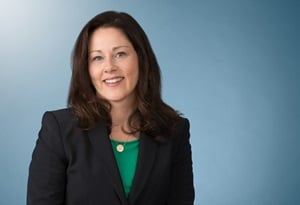Don't Leave Out Sick Leave: New Benefits Required for Chicago and Cook County Employees on July 1
Effective July 1, 2017, Chicago and Cook County employers are required to provide workers with paid sick time to care for themselves or family members. This follows the January 1, 2017 enactment of the Employee Sick Leave Act in Illinois, which permits an employee to use “personal sick leave benefits” for family care purposes.
The Chicago Minimum Wage and Paid Sick Leave Ordinance and the Cook County Earned Sick Leave Ordinance provide that any Covered Employee who works in Chicago and Cook County, respectively, for at least 80 hours for an employer within a 120-day period is eligible for Paid Sick Leave (or “Earned” Sick Time as defined in the Cook County Ordinance). This legislation mirrors that of at least 20 other municipalities that require employer provided paid sick leave, including Minneapolis and St. Paul on July 1, 2017.
General Provisions of the Ordinances
The general provisions of the Chicago and Cook County Ordinances are nearly identical:
Paid (or Earned) Sick Leave accrues either on the first calendar day after the commencement of a Covered Employee’s employment or on the effective date of the applicable Ordinance. For every 40 hours worked after a Covered Employee’s Paid (or Earned) Sick Leave begins to accrue, an employee accrues one hour of Paid (or Earned) Sick Leave in hourly increments. Exempt Covered Employees are assumed to have worked 40 hours in each workweek for purposes of Paid (or Earned) Sick Leave accrual, unless the normal work week is less than 40 hours, in which case the Paid (or Earned) Sick Leave is based on the normal work hours. There is a cap of 40 hours Paid (or Earned) Sick Leave accrued per 12-month period, unless the employer sets a higher limit.
Covered Employees may carry over up to 20 hours to the following 12-month period. If an employer is subject to the Family and Medical Leave Act (FMLA), Covered Employees may carry over up to 40 hours of unused, accrued Paid (or Earned) Sick Leave to be used exclusively for FMLA eligible purposes. However, if a Covered Employee carries over 40 hours of FMLA leave, the Covered Employee is entitled to use no more than 20 hours of accrued Paid (or Earned) Sick Leave in the same 12-month period, unless the employer sets a higher limit.
The Chicago and Cook County Ordinances specify that an employer must allow a Covered Employee to use Paid (or Earned) Sick Leave no later than on the 180th calendar day following the commencement of the Covered Employee’s employment. Employers may require Covered Employees to use at least four hours of Paid (or Earned) Sick Leave per day.
An employer is not required to pay out or reimburse a Covered Employee for his or her unused Paid (or Earned) Sick Leave upon his or her separation from the employer, absent an agreement providing otherwise.
When a Covered Employee May Use Paid (or Earned) Sick Leave
Both Ordinances permit a Covered Employee to use Paid (or Earned) Sick Leave:
- For an employee’s own illness, injury, or for the purpose of receiving medical care, treatment, diagnosis or preventive medical care
- For an employee’s family member’s illness, injury, or to care for a family member receiving medical care, treatment, diagnosis or preventive medical care
- When an employee or an employee’s family member is the victim of domestic violence or a sex offense
- When the employee’s place of business is closed by order of a public official due to a public health emergency, or the employee needs to care for a child whose school or place of care has been closed due to a public health emergency
Requirements for Employees to Provide Notice When Using Paid (or Earned) Sick Leave
Employers may require up to seven days’ notice for a reasonably foreseeable leave (i.e., prescheduled appointments with health care or court dates in domestic violence cases), or require the employee to give notice as soon as practicable on the day the Covered Employee intends to take Paid (or Earned) Sick Leave by calling, emailing or text messaging the employer. Employers may also require certification for absences for more than three consecutive work days (e.g., licensed health provider). However, if leave is one that is covered by FMLA, notice shall be given in accordance with the FMLA.
Limitations on Employers’ Leave Policies
Employers are prohibited from requiring a Covered Employee to find a replacement worker to cover the hours during which the Covered Employee is on Paid (or Earned) Sick Leave as a condition to taking Paid (or Earned) Sick Leave. Employers may not request documentation that specifies the nature of an illness, injury or condition or evidence that supports the Covered Employee’s leave (i.e., police report, court document, a signed statement from an attorney), absent other reason for requiring documentation (e.g., ADA accommodation or FMLA certification). Employers are further prohibited from delaying the commencement of Paid (or Earned) Sick Leave or payment of wages on the basis that the employer has not yet received certification. Moreover, employers are prohibited from discriminating or taking any adverse action against any Covered Employee in retaliation for exercising the Covered Employee’s right to Paid (or Earned) Sick Leave.
The Chicago and Cook County Ordinances do not prohibit an employer from taking disciplinary action, up to and including termination, against a Covered Employee who uses Paid (or Earned) Sick Leave for purposes other than what is prescribed in the Ordinances. Nothing in either Ordinance is deemed to interfere with or impede the application of collective bargaining agreements.
Notice Requirements
Chicago and Cook County employers are required to post a notice in a conspicuous place at each facility where any Covered Employee works that is located within the geographic boundaries of the City or County. However, employers that do not maintain a business facility within the geographic boundaries of the County are exempt from the notice requirement.
Chicago and Cook County employers are required to provide a Covered Employee written notice of his or her rights to Paid (or Earned) Sick Time. However, Chicago employers must specifically provide notice with a Covered Employee’s first paycheck.
Violations and Penalties
Under both Ordinances, violations may subject employers to civil action damages equal to three times the full amount of any unpaid sick time, interest, costs and attorney’s fees. Actions brought pursuant to the Cook County Ordinance may be brought without first filing an administrative complaint and have a statute of limitations period of three years from the date of the last event constituting the alleged violation. Nothing in either Ordinance suggests that Chicago employers cannot potentially be liable under both Chicago and Cook County Ordinances.
Employers’ Next Steps
Employers should plan to review their paid leave policies for Chicago and Cook County employees and identify necessary revisions to comply with the Ordinances. Employers also must determine how to track Paid (or Earned) Sick Leave and carryover time and must prepare notices to provide to each Covered Employee (i.e., to include in first paycheck). Finally, the City of Chicago and Cook County will require each employer to post notices at each facility located in Chicago and Cook County.
The material contained in this communication is informational, general in nature and does not constitute legal advice. The material contained in this communication should not be relied upon or used without consulting a lawyer to consider your specific circumstances. This communication was published on the date specified and may not include any changes in the topics, laws, rules or regulations covered. Receipt of this communication does not establish an attorney-client relationship. In some jurisdictions, this communication may be considered attorney advertising.



